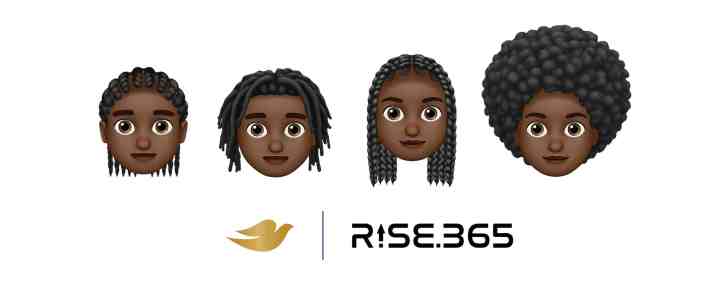Afro Emojis Still Don’t Exist, but That Could Change in 2025

Courtesy of Dove.
Out of 3,790 existing emojis, not a single one represents Black or mixed-race hairstyles. This week, Dove and U.K.-based nonprofit RISE.365 renewed the call to introduce four new emojis that showcase textured hairstyles featuring locs, braids, cornrows, and afros. In a new social media campaign, the groups are calling for people to show the world that Black hairstyles deserve to be added to the emoji library by commenting #CodeMyCrown on their Instagram page.
New research from Dove reveals that 8 in 10 Black people in the U.S. struggle to find emojis that accurately reflect their hair. As a result, 57% of Black people report feeling undervalued due to this lack of representation, perceiving their identity as less important. The survey, conducted in February 2025, included 900 Black and mixed-race people in the U.S., U.K., and Brazil who are 18 or older and use emojis.
“Emojis are not just symbols; they influence how we see ourselves and each other,” said Joycelyn Buffong, founder and CEO of RISE.365, in a press release. “For too long, Black people have been excluded from digital representation, reinforcing the idea that our features and identities are an afterthought. This movement is about more than emojis – it’s about recognition, inclusion, and ensuring that Black and mixed race hairstyles are seen, valued, and celebrated everywhere, including in digital spaces.”
Dove’s digital campaign with RISE.365 builds on the CROWN Coalition’s ongoing advocacy to expand beauty representation, including their support of the Crown Act. This bill makes hair-based discrimination illegal in 27 states and dozens of cities across the U.S.
RISE. 365’s young leaders designed the four proposed emojis— and just like with other current emojis, you would be able to use the hairstyles with different skin tones. The goal of the #CodeMyCrown campaign is to apply public pressure on the Unicode Consortium, the nonprofit responsible for recommending new emoji characters. Unicode has declined at least one past proposal for an afro hair emoji and stated in 2019 that the “curly hair emoji was designed to reflect a variety of hairstyles.” Unicode will begin accepting submissions for new emojis on April 2.
While we’ve seen emojis come in more diverse skin tones and even feature Latine cultural staples like a tamal, piñata, and yerba mate, the lack of representation in our online communication has real-world consequences. More than two-thirds of Black people say they use emojis to represent their identity, physical characteristics, and culture. Afro emojis accurately depicting Black hairstyles would increase representation and visibility for Afro-Latines.